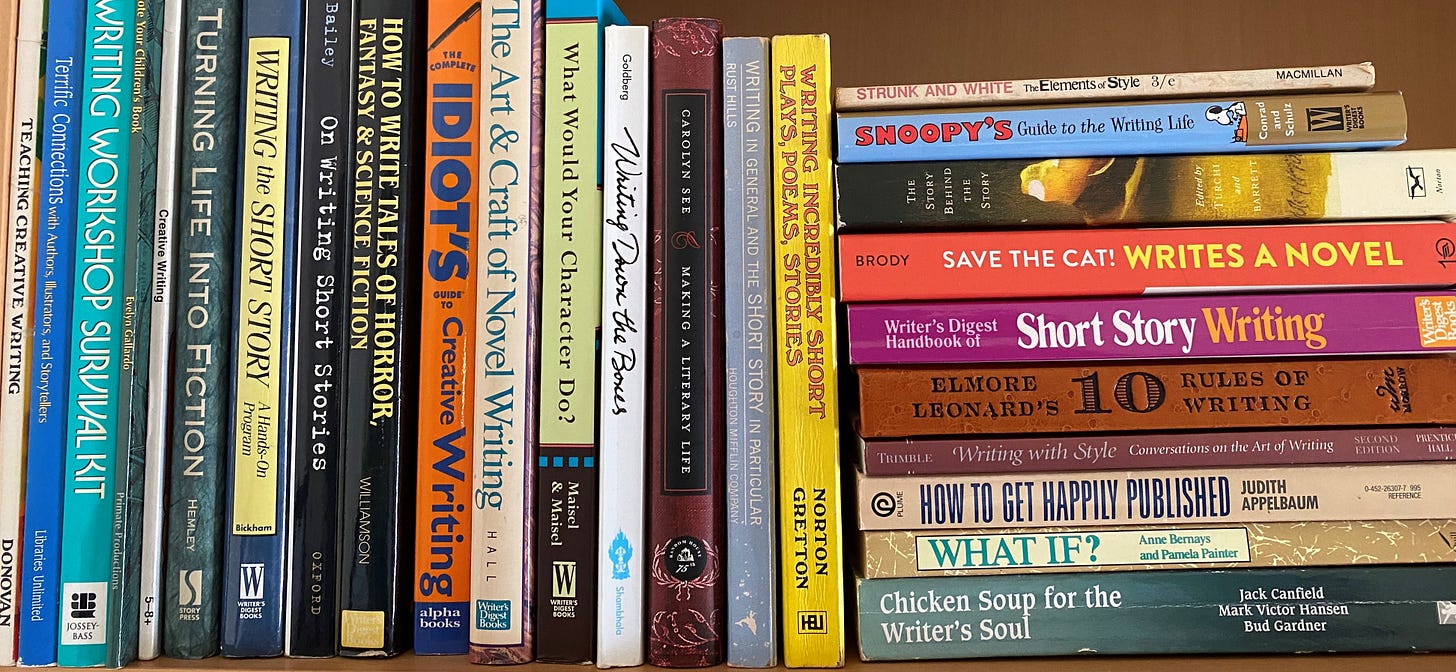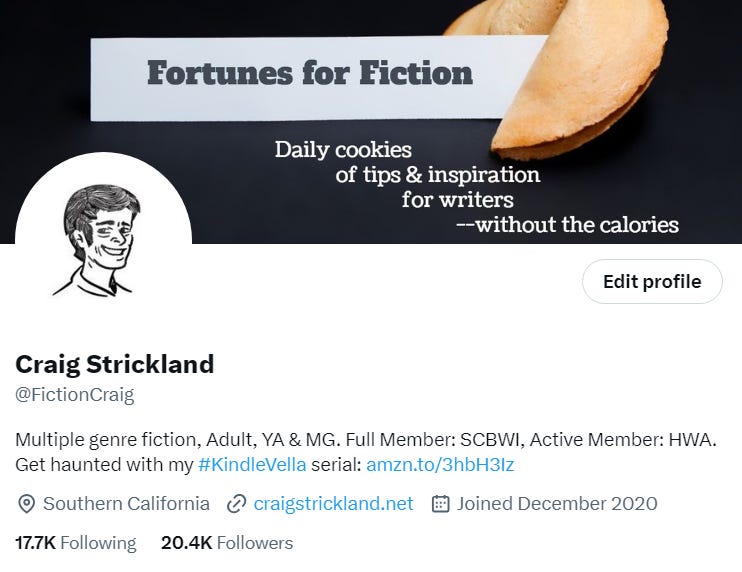Read While You Write
Issue #16
"If you are going to get anywhere in life you have to read a lot of books.”
So true, Mr. Dahl. We’ll talk both fiction and reference books, but novels first, ’cause that’s what we’re attempting together here.
Make a Choice Regarding Fiction-Reading
A simple search will lead you to articles and studies which indicate fiction-reading can help shape your life (Greater Good Magazine), lessen anxiety (Tolstoy Therapy) or even make you a better person (Big Think). So it’s good for all of us, but it’s essential if you write fiction. We’ll cover resource books in a moment, but let’s face it: if you write, there is no better way to learn the intricacies of character, devising a plot, or creating narrative than by example. The problem? Speaking for myself, when I’m actively writing, I tend to neglect my reading.
A few issues from now we’ll discuss the logistics of fitting writing time into busy lives. For now, just keep in mind this truth: when you flip into self-disciplined-writer-mode, you can’t neglect balance. I’m somewhat of an ascetic (a person who denies their own pleasure) when it comes to reading. It seems such a guilty pleasure it’s hard for me to justify taking away from writing time to do it. Here are two reminders, as much for myself as for you.
· Pleasure reading makes me a better writer
· Pleasure reading lets me take needed breaks from my writing
One more point. We did touch on reading in issue #9 (“Good Books, Bad Books, and Your Ideal Reader”), and the necessity of reading as much as possible, all the while analyzing what’s working and what’s not in the books we’re consuming. However, now that we have an idea actually incubating, things are different.
Which leads to this: you might want to consider holding back on what you read.
Once you’ve zeroed in on your genre and a general plotline and you’re preparing to write, you can go one of two ways:
· You can read everything in sight which is close to your idea so you can see how other authors have handled similar plotlines, stories and characters…
Or
· You can avoid reading anything which is close to your idea so you don’t unconsciously appropriate similar plotlines, stories and characters.
Personally, while actively constructing a novel I try to avoid consuming fiction that covers similar territory. When I come on these books I’ll set ‘em aside to read after I’ve finished writing my own. Knowing me, I suspect they might influence my narrative, and I don’t want that to happen.
You’ll have to decide this one for yourself.
A Few Words on Reference Books
As you see, I’ve compiled quite a collection. I’ll often impulsively buy a new one when I see it, just for the different perspectives. I’ve gotten tips and innovative ideas from each both for my own writing and for the classes I’ve taught.
The Basics – Dictionaries and Thesauruses (or Thesauri)
I don’t use the physical book versions of these volumes anymore; I simply go online. There is an advantage to doing so, because old-school versions of these books continually go out of date. New words and meanings are being added to our vocabulary all the time.
I usually use the Merriam-Webster Dictionary. Another online advantage (as used in my “one-word vocab quizzes,”): you’ll hear the words pronounced. If I need a thesaurus, I call up Power Thesaurus. And if you’ve never used a rhyming dictionary (and sometimes fiction cries out for the inclusion of a little poetry, a topic we’ll cover in the future), check out Rhyme Zone.
Author Classics
These are my favorite author-penned reference books on writing, each with a different angle, and each designed to be reread. I learn more each time I open them.
Humor
You’ll notice I sometimes use attributed cartoons to illustrate these pages. It’s therapeutic to see certain common situations/themes pointed out in this form. Among my favorites are the ones created by Charles Schultz in Snoopy’s Guide to the Writing Life showing Snoopy as a struggling writer. They’re all collected here in one volume with commentary by renowned authors.
Writer’s Support
This volume, geared specifically for writers with stories by established authors, inspires in typical Chicken Soup for the Soul tradition.
(Self-promotion time, as long as we’re on the subject. I do have stories in three of the Chicken Soup for the Soul volumes, just sayin’. Here are two of them.)
As we get ready to consider the rest of the mechanics behind the writing process which lie ahead, don’t forget to read, both for pleasure and for learnin’. You owe it to yourself as a writer.
Speaking of not holding back on pleasures, here’s our potentially endangered word-of-the-issue. Say it, define it, and make it yours.
What is an ascetic?
Action Plan
On X (formerly Twitter), I post a new daily rhyming writing tip on which many of these issues are based. Follow—you know you want to.
Next Up:
#17) Setting the Stage - An Overview. See you in two weeks!
Craig















I love how ascetic reminds me of aesthetic. Like there is beauty in the minimal.
Might I suggest that when you mention a prior post you link it? Some of us are lazy and just want to read it with a simple click 😬
Ascetic was my older brothers favorite word (and his selfish butt didn’t deny himself anything)!